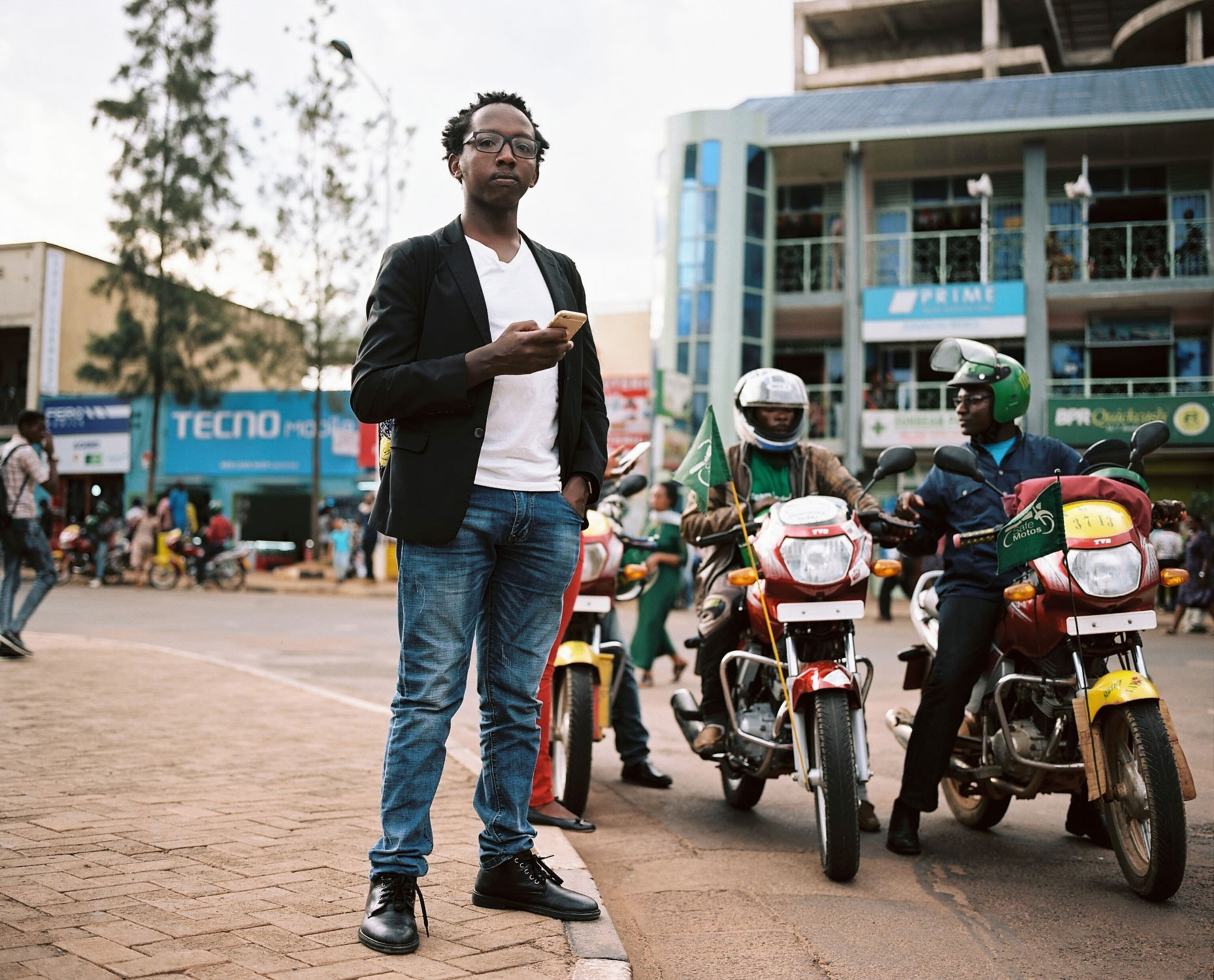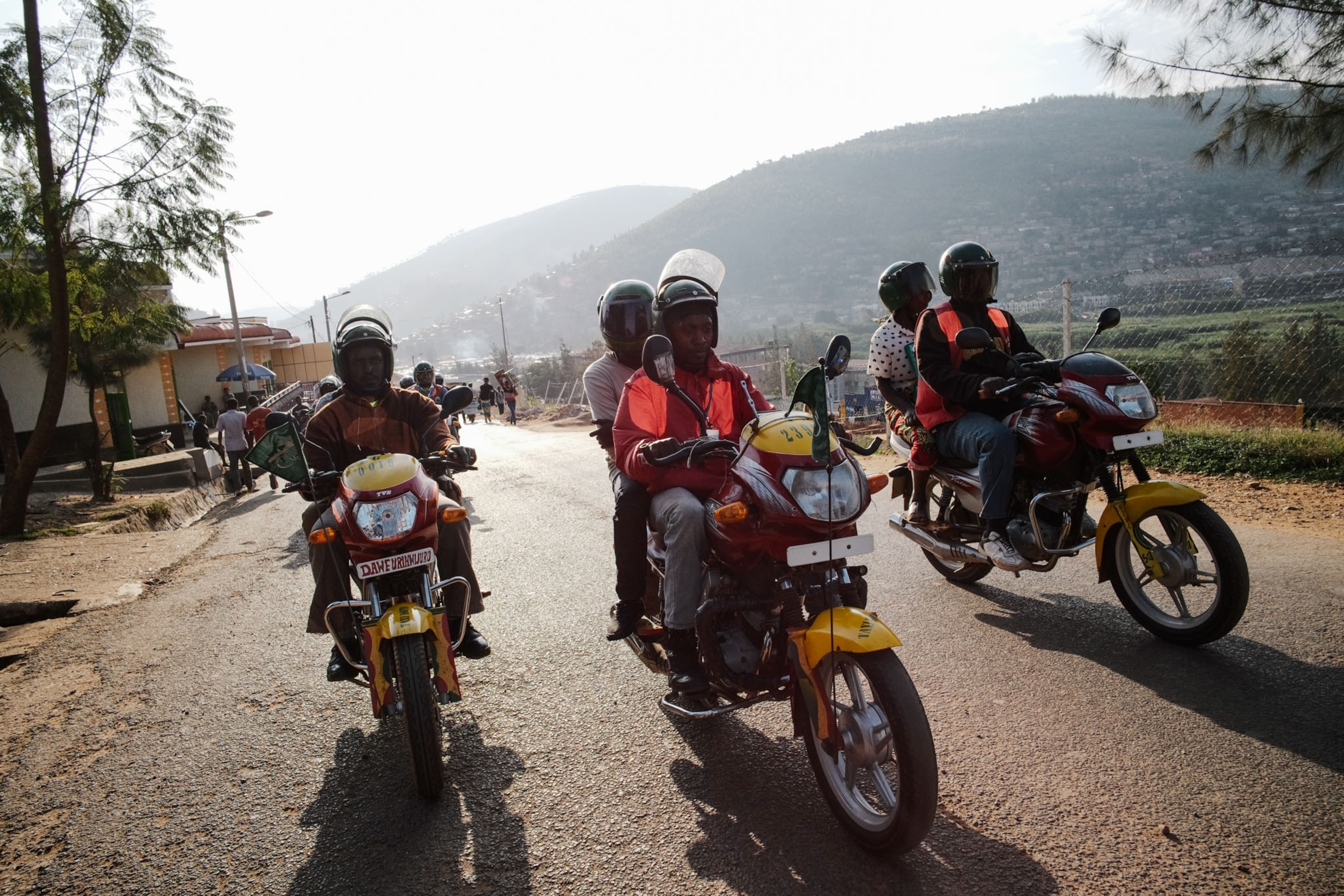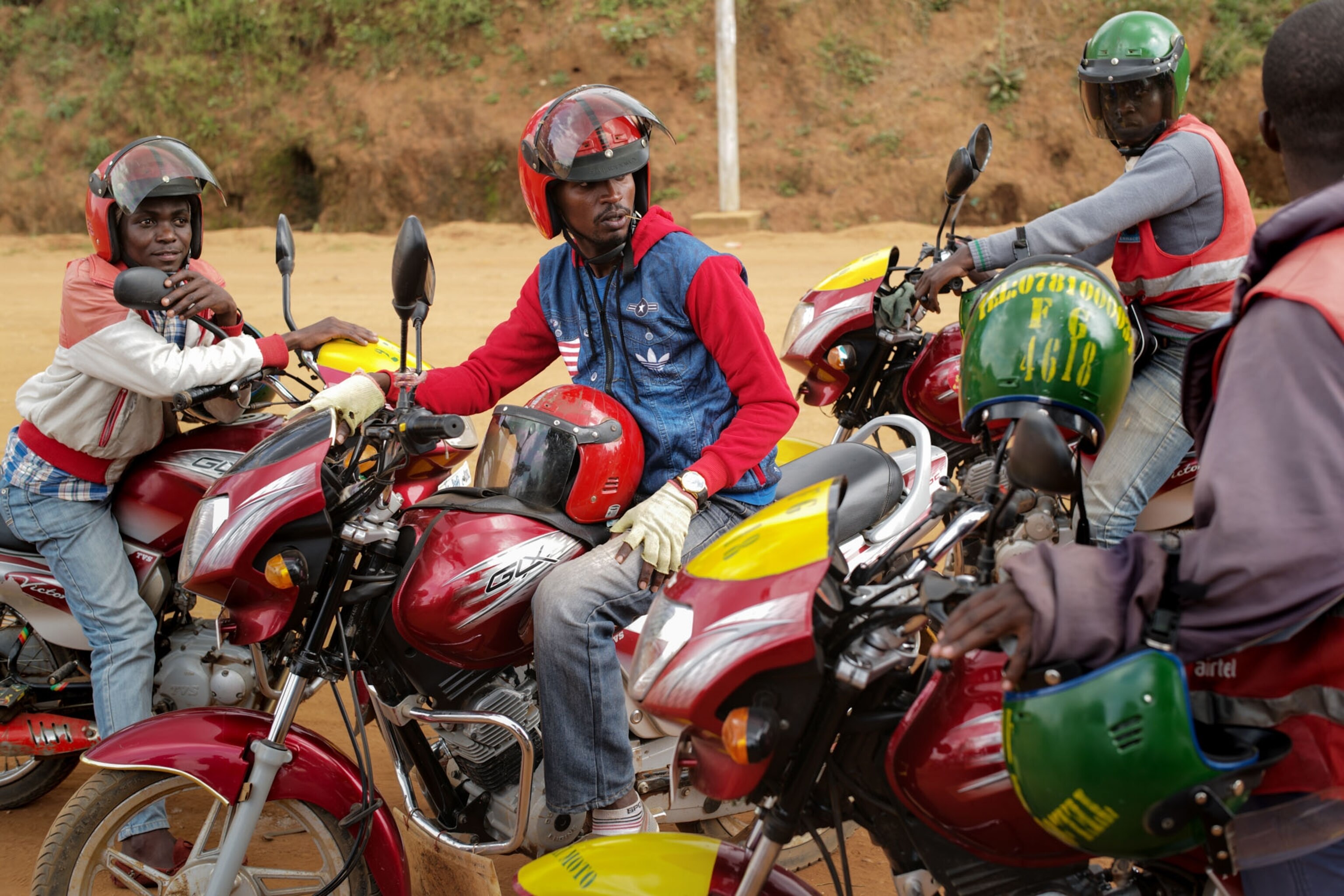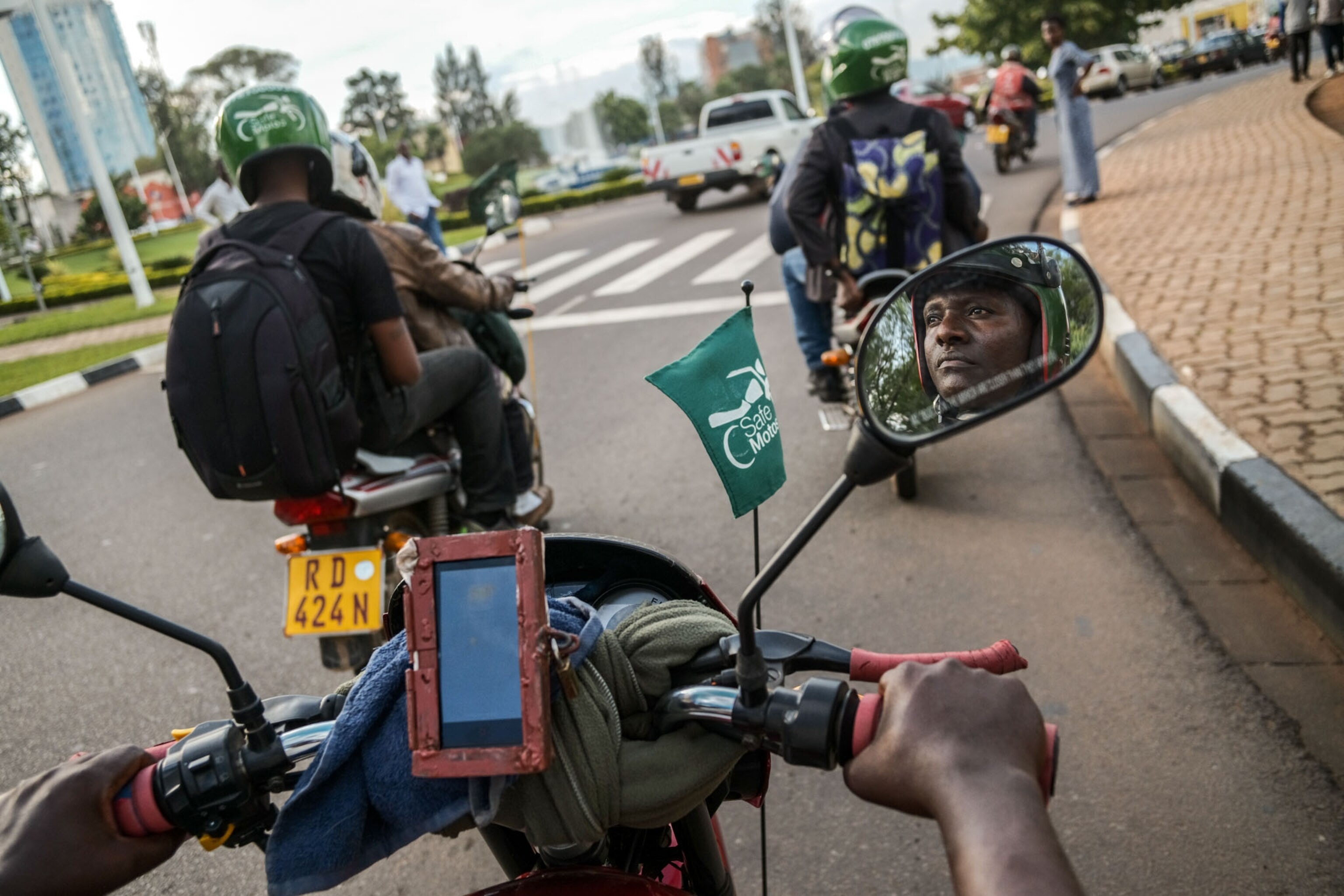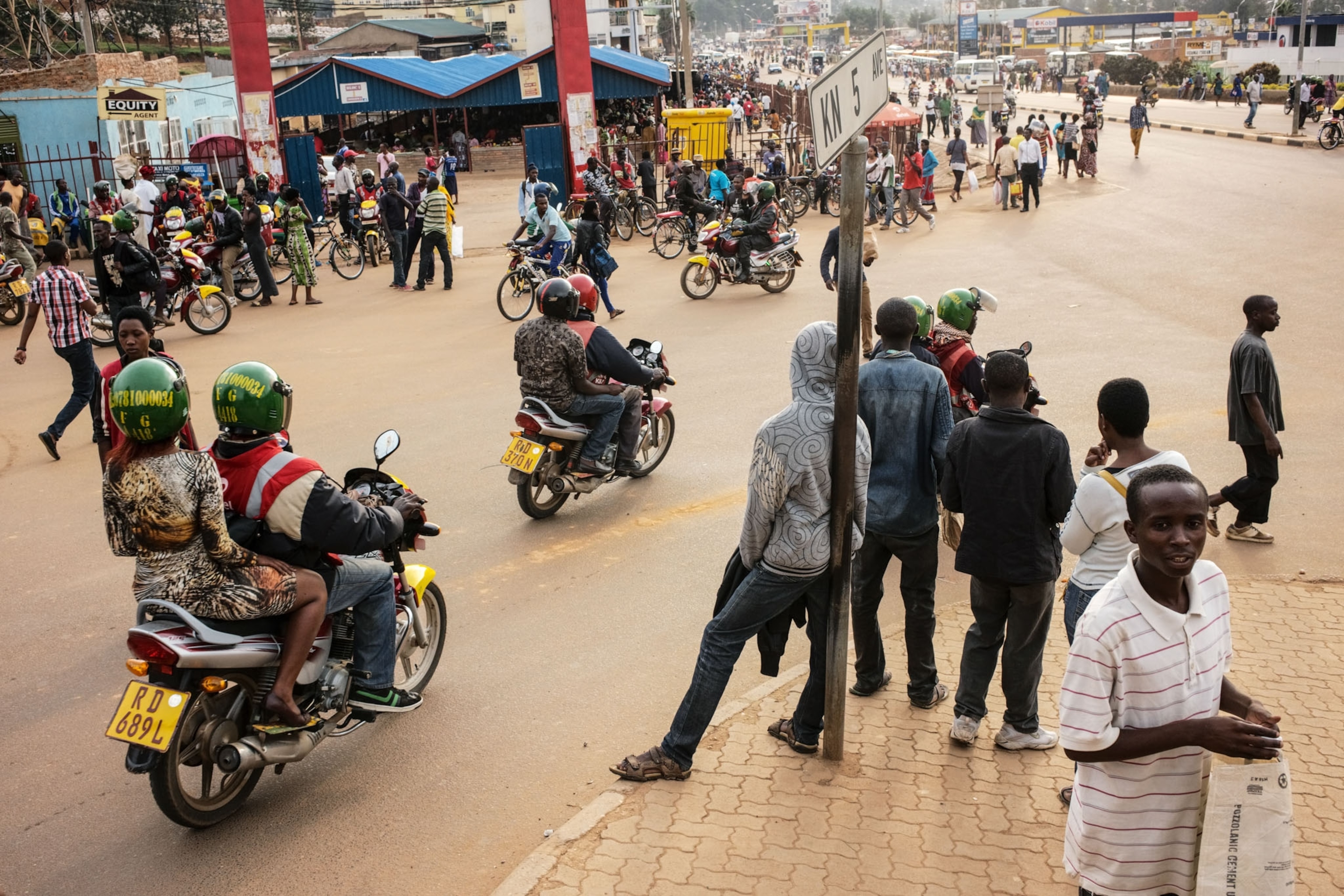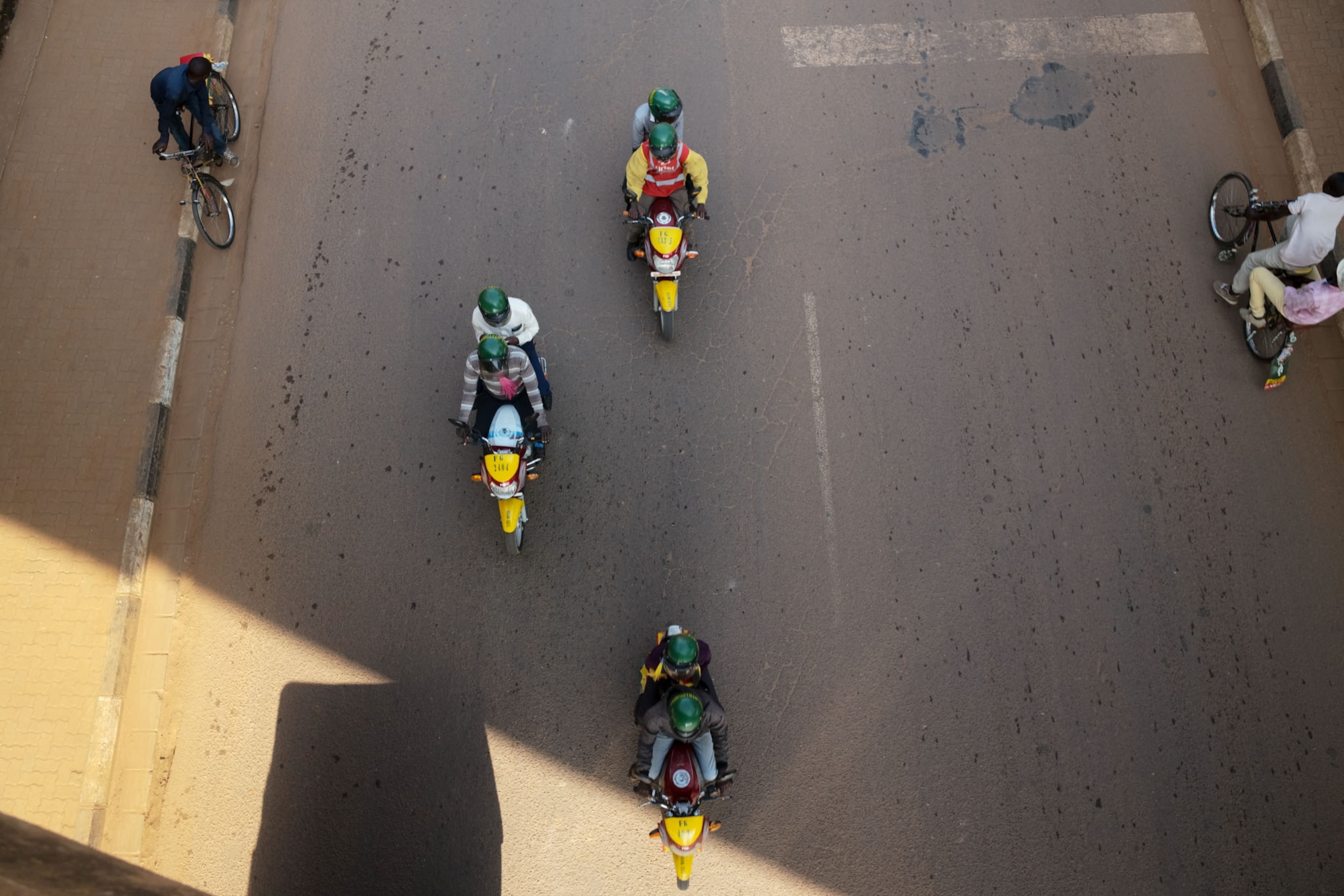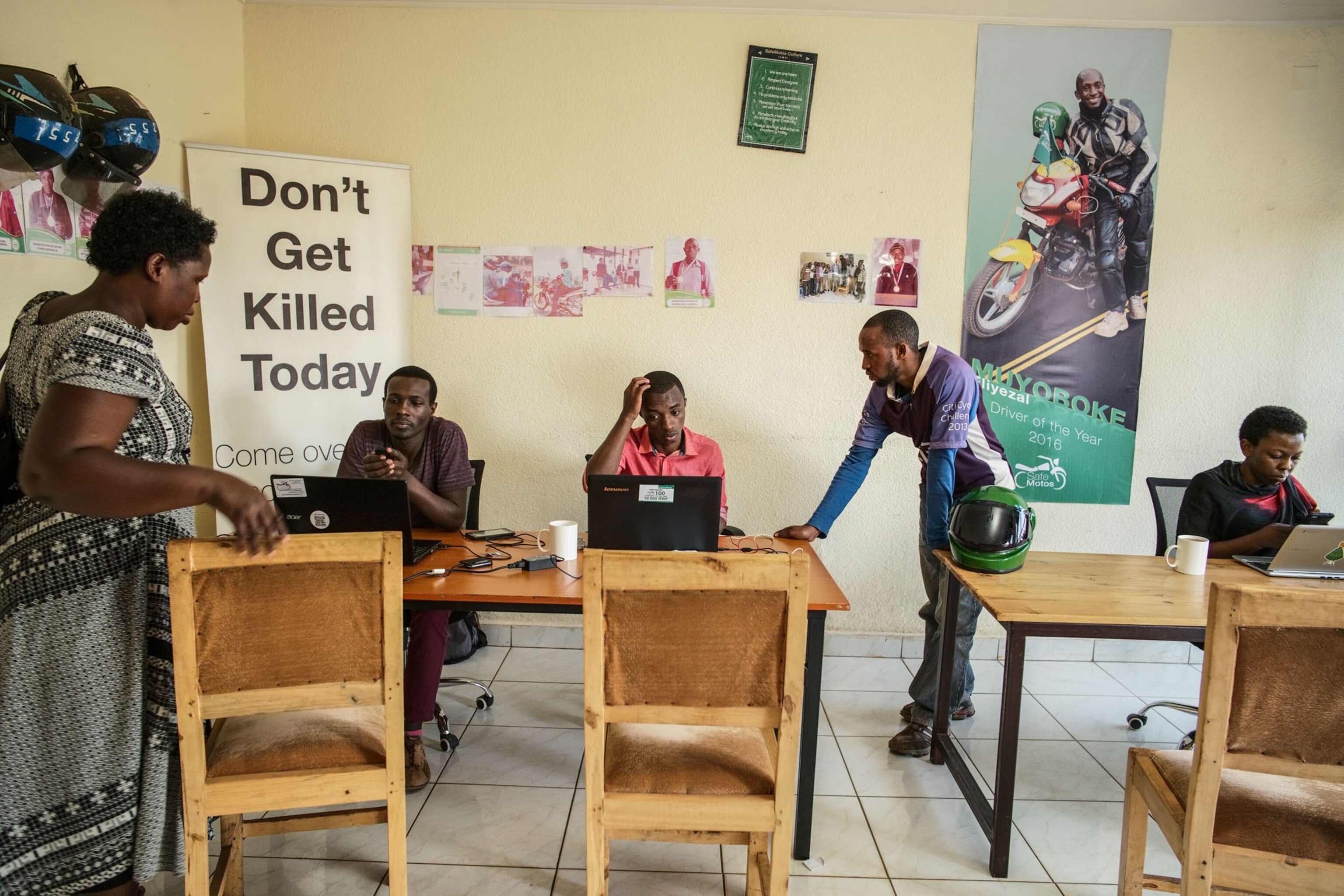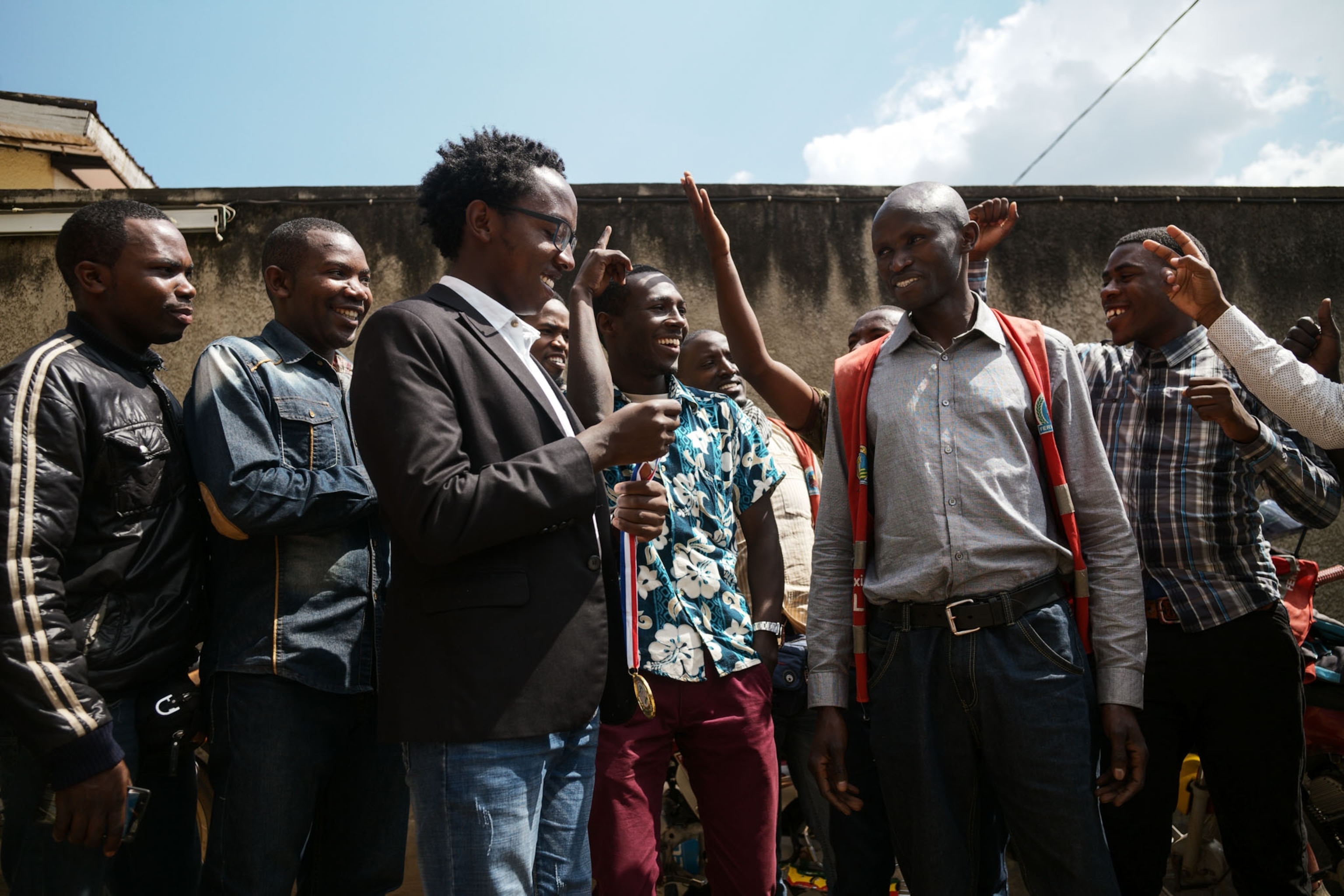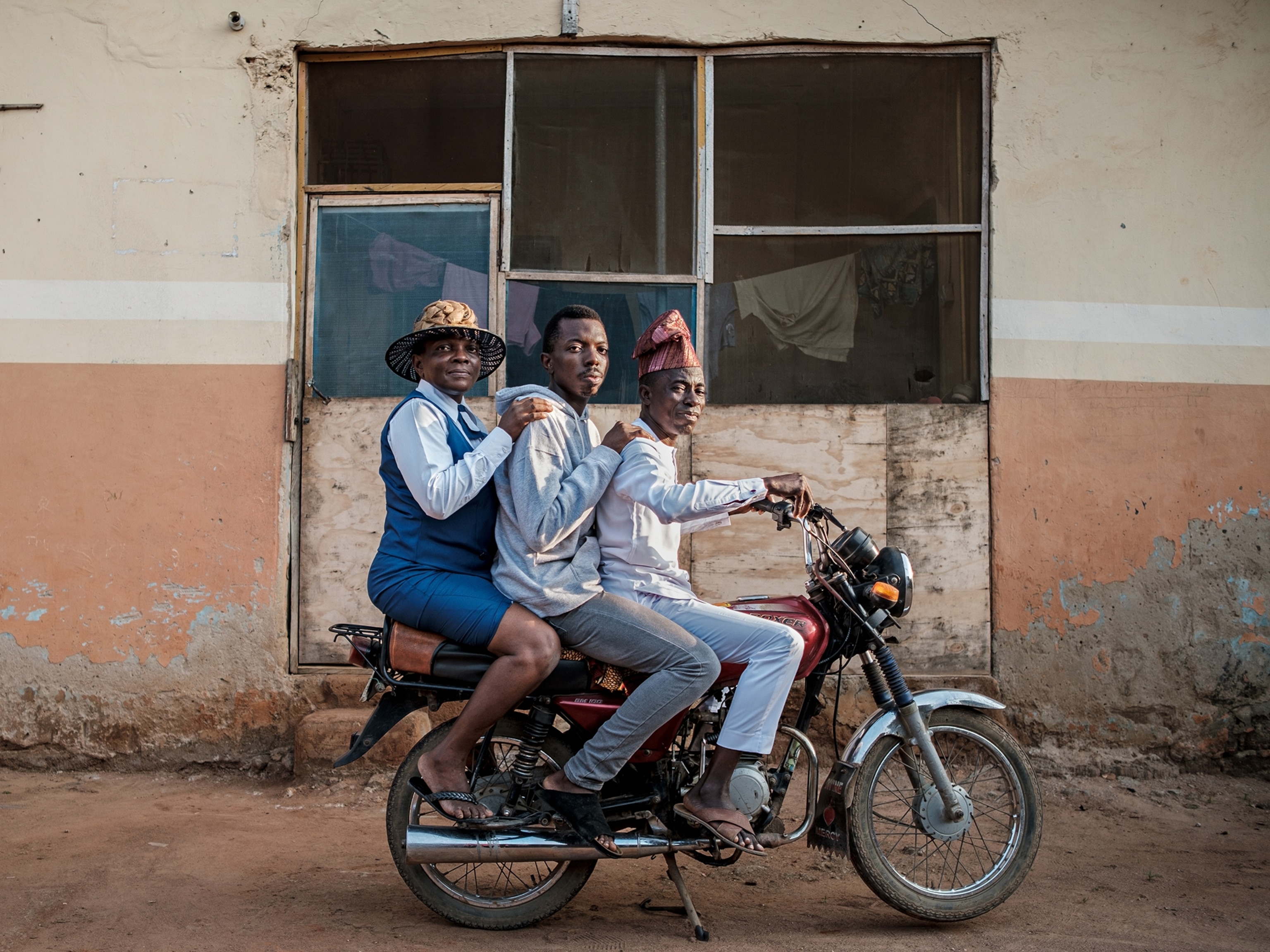How this Innovative App Became Africa's Uber
A look at the Rwanda-based start-up has changed the life of commuters and has made the streets safer.
Touch down in Kigali, Rwanda, and you’ll quickly notice a few things about the city. Hills rise from the earth, tufted with verdant trees like bubbles in a champagne glass. A hopeful energy bounces around the clean, sidewalk-lined streets from morning until night. On almost every corner, near roundabouts, outside of restaurants or bars, groups of motorcycle taxis sit waiting and ready to take riders around Kigali. Every bike looks the same: a red body accented by streaks of silver. The drivers all wear green helmets, and they carry an extra that they give to their customers.

Motorbikes are a speedy, convenient, and affordable transport option that is an embedded in Rwanda’s DNA. But they’re also dangerous, which experts say is due to driver error, both from the motorcycle taxi drivers and other drivers on the roads. Motorcycle accidents account for 80 percent of Rwanda’s road accidents, a statistic that only becomes scarier in deeper context: In Sub-Saharan Africa, traffic accidents are among the leading causes of death in the region, trailing close behind AIDS and malaria.
But as Kigali and other African cities undergo a population boom, so, too, does the demand for getting around cities in a way that’s safe and efficient—and makes sense for Africa.
“Motorcycle taxis are cheap to operate and can zip between cracks in the congested traffic,” says Barrett Nash, co-founder of SafeMotos, a Kigali-based startup that is revolutionizing the motorcycle taxi industry in Rwanda.
Recognizing the need to make motorcycle taxis a safer option, Nash and his business partner Peter Kariuki founded SafeMotos in 2015. Like Uber, SafeMotos is an app that riders can download to their smartphones and use to order motorcycle taxis on demand as opposed to hailing them down on the streets.
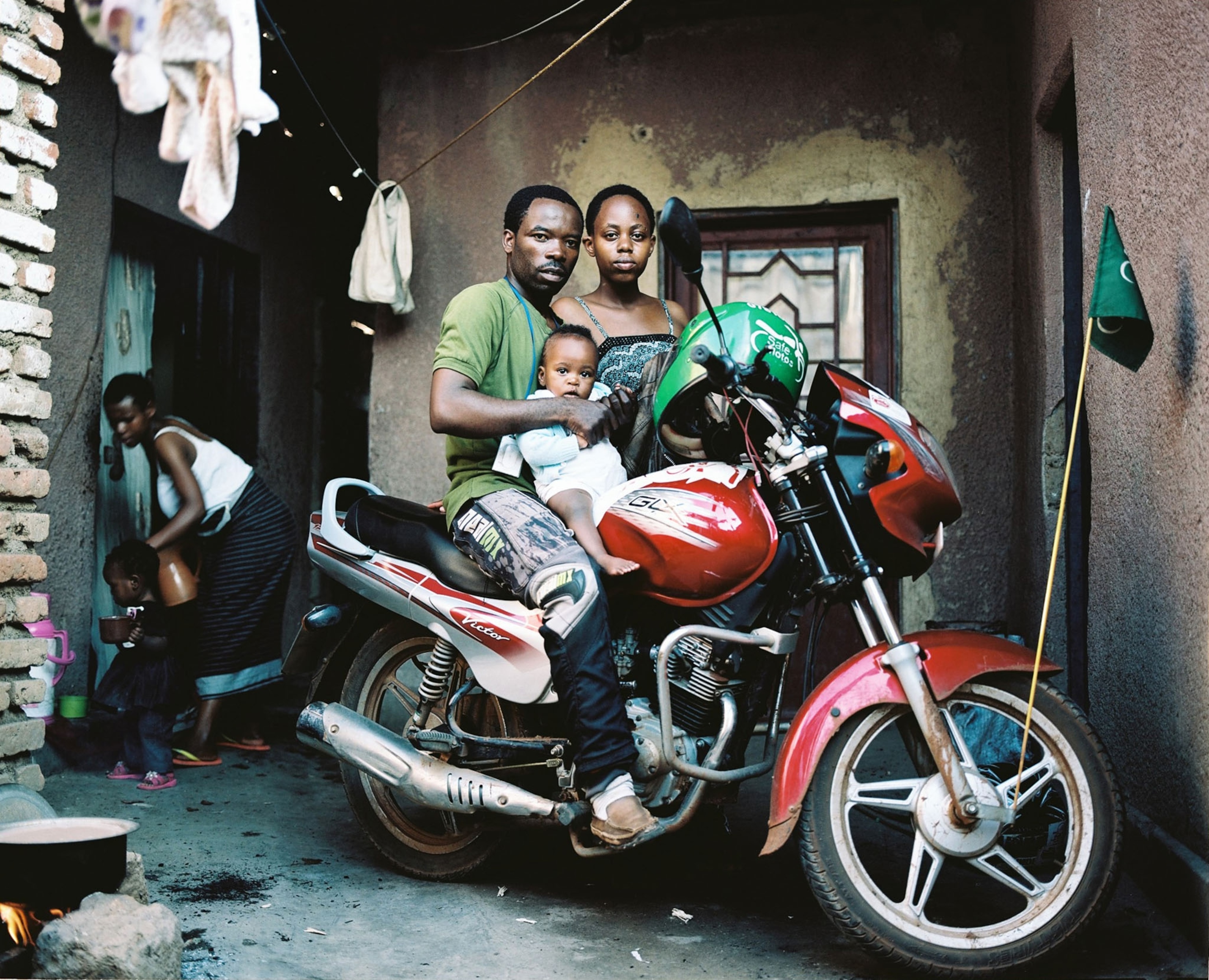
More than just a ride-sharing service, SafeMotos is aptly named for the promise it aims to deliver—safe transportation by monitoring its fleet of drivers in real-time. Drivers are required to have at least three years of experience before joining SafeMotos. After being screened, they are given a smartphone and the SafeMotos app, which records their speed, acceleration, running location, and gyroscope information. The data is analyzed and used to give drivers a score out of a hundred. They must score at least 90 to keep working with the company.
Photographer Ciril Jazbec started documenting the journey of SafeMotos in 2015, when the company won funding at a startup competition in Kenya. Kariuki, who is Kenyan, and Barrett, who is a Canadian ex-pat, joined competitors from all across Africa to pitch ideas on how to transform everything from agriculture to transportation.
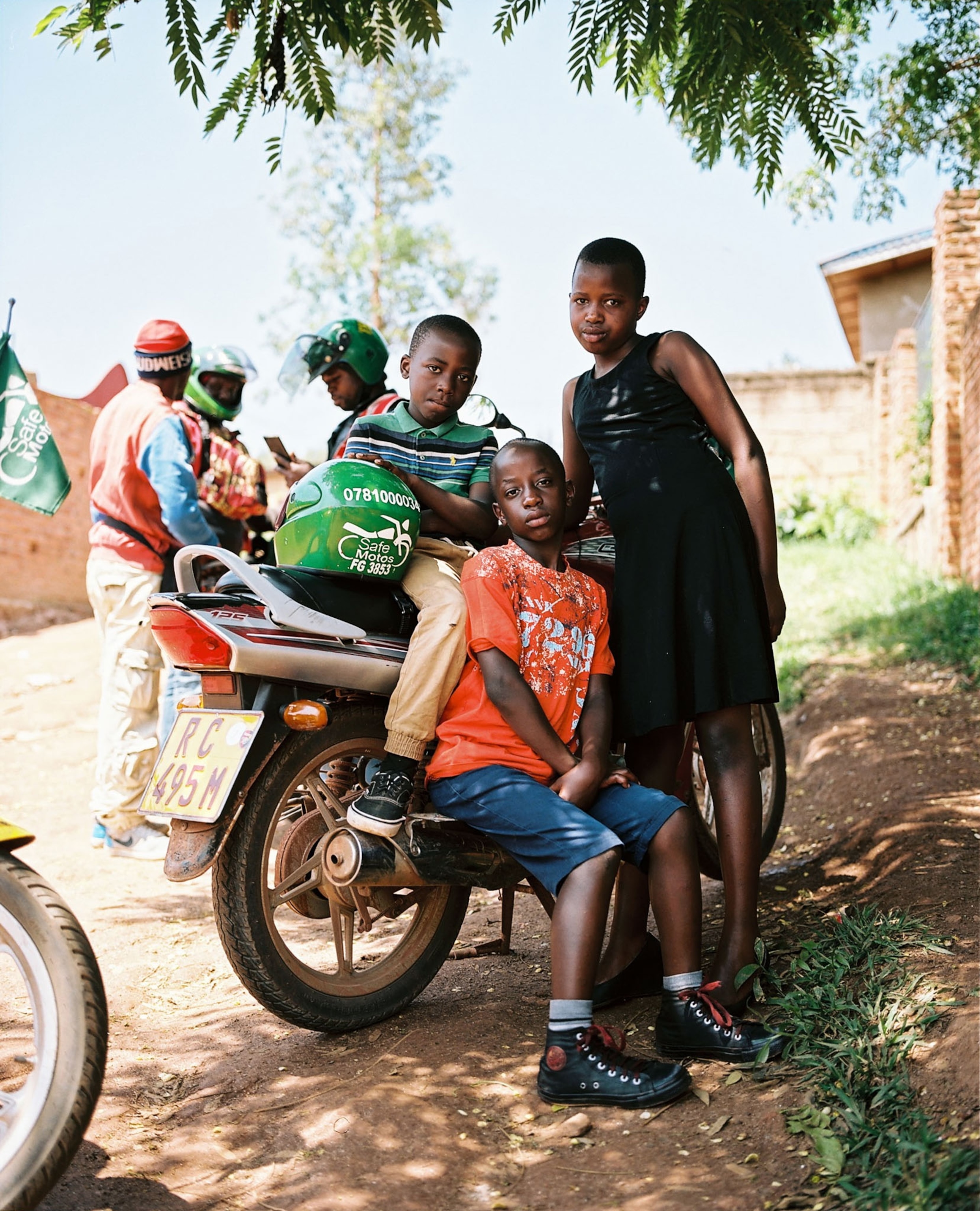
“They just had this really uplifting energy,” Jazbec says of the pair.
SafeMotos has since expanded, bringing on more people and hiring more drivers. The benefits are not only economic in terms of wages and training, but the drivers are also given weekly English classes so they can attract the increasing numbers of foreign tourists visiting Rwanda.
For Jazbec, documenting the growth of SafeMotos throughout the past couple of years has been an opportunity to showcase to break down the stereotypes of the continent that are perpetuated in the Western world.

By photographing the system at work, Jazbec shed light on certain realities—like poor infrastructure—while championing the progress that African tech visionaries are creating. “They’re seeing the problems and creating solutions with their own know-how,” Jazbec says.
